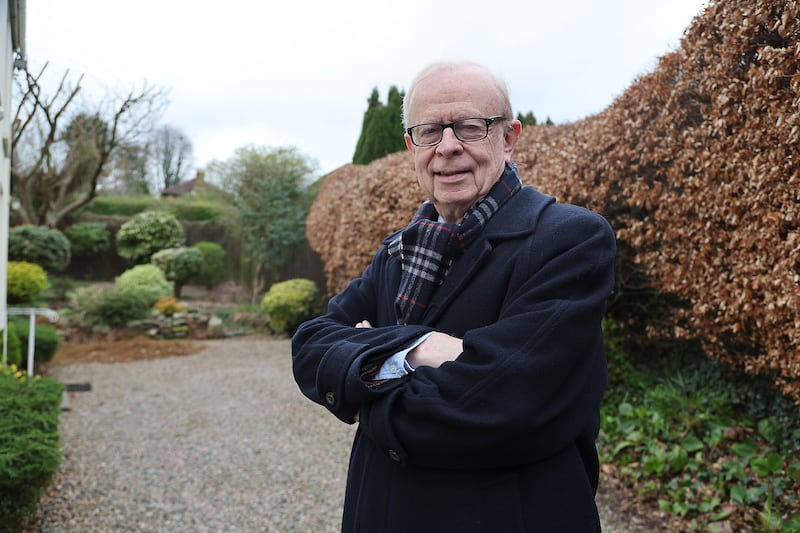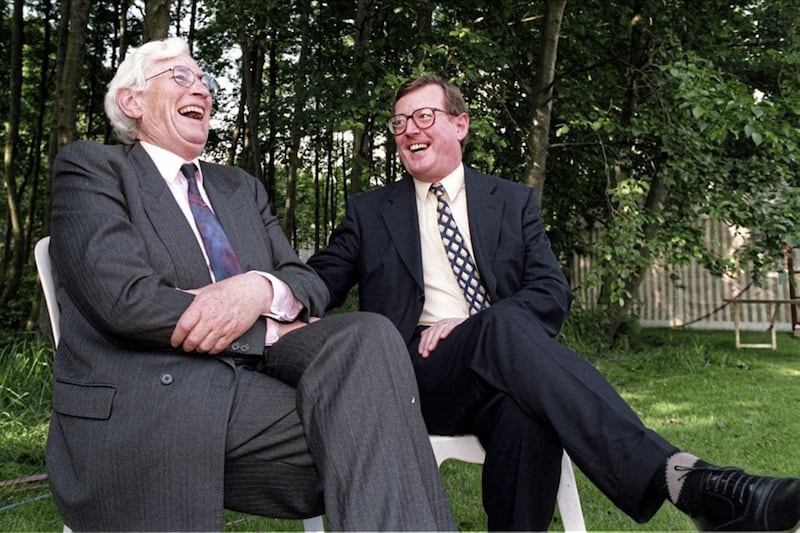Doug Beattie’s explanation for quitting as UUP leader is “irreconcilable differences between myself and party officers combined with the inability to influence and shape the party”.
In his resignation letter, he added that “some” in the wider UUP “did not agree with the direction and path I set for the party and the vision I promoted”.
This conjures up images of a liberal leader wrestling with intractable conservative forces, but that common perception is misconceived.
Of the 10 party officers, one or two might be said to be from the stauncher end of unionism, although they might dispute that description of themselves. Everyone else should be either a supporter or a potential sympathiser with Beattie’s liberalising project, even if through desperation more than conviction.
They include deputy leader Robbie Butler, representing the UUP’s assembly group, and former leader Sir Reg Empey, representing the Westminster group.
Empey is one of unionism’s best thinkers on Brexit, producing pitch-perfect policy documents that approach the subject as a DUP disaster to be minimised through pragmatism. Beattie’s failure to develop this left the impression that he was just not that interested in Brexit, unionism’s defining problem throughout his time as leader.

Beattie saw the UUP’s defining problem as positioning its centre of gravity between the DUP and Alliance. Most UUP members would agree, with a little persuasion.
They disagree, often passionately, on whether this means becoming a more liberal party or encompassing more liberalism within a broad church. However, many political leaders would be thankful for such an inherently manageable division. Butler seems to have no difficulty being more socially conservative than Beattie while still being his presumed successor.
The dilemma Beattie leaves behind is that his vision was correct, yet he still failed to deliver it. Had his vision clearly been wrong, at least the party could agree it needed a change of direction. Instead, it faces the daunting task of sticking to a course that destroys leaders committed to it. Beattie’s predecessor, Steve Aiken, suffered a similar fate, as did Mike Nesbitt a decade ago.
Beattie’s failure came down to the qualities of leadership itself: projecting authority, managing a team, and grasping the dark arts of politics, including at the organisational level.

Every new leader of the Labour Party, for example, seems to know their first fight is re-writing the rule book in their favour. Beattie’s supporters are complaining about the UUP’s structures and processes, claiming these frustrated and obstructed his decisions, yet he appears to have done nothing to reform them during three years at the helm.
Beattie won praise for his frank communication style, with some critics suggesting he was too honest for a politician. But the fault was over-familiarity, not honesty. We all knew too much about Beattie, through his constant media and social media engagement. A blanker slate would have allowed voters to project their own hopes and views onto him, making it easier to squeeze a broad church onto a narrower liberal ground.
A certain distance may be the only way to accomplish the multi-dimensional positioning manoeuvre the UUP has been attempting. East Antrim MLA John Stewart, an outside contender for the leadership, appeals partly because he is a dark horse.
What Beattie got right was his rejection of electoral pacts. He knew it was crucial to offer unionist voters a distinct choice, protecting support for the UUP and for unionism overall. This proved its worth in last month’s general election, when the unionist vote share recovered after four years of decline. There is no guarantee Beattie’s successor will show such resolve; short-sighted calls for ‘unionist unity’ are growing as the DUP shrinks and panics.
Beattie was also right that the UUP should have entered opposition when Stormont was restored in February. He lost this argument internally, and over-shared again by making it public. The UUP would head an official opposition and form an ‘alternative executive’ alongside the SDLP, giving both parties a clear role.
When Beattie became leader he said the UUP might have to ‘shrink to grow’. A more accurate term would be ‘shrink to fit’
A new leader will presumably be even less likely to take the UUP out of the executive, an option the party retains until February 2026 under rule changes agreed in New Decade, New Approach.
When Beattie became leader he said the UUP might have to “shrink to grow”, as did Nesbitt years before. A more accurate term would be ‘shrink to fit’ – serving a permanently smaller but more sustainable chunk of the electorate.
Of course, that is a far harder message to sell to any party. Selling it now falls to someone else.









